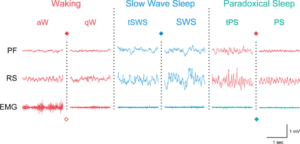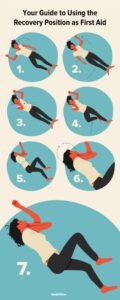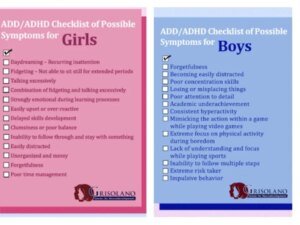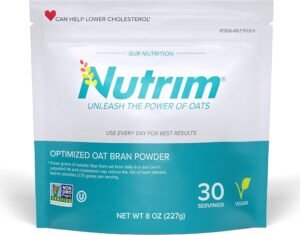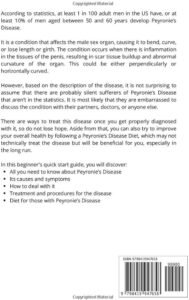Pain in the Chest_ It Could Be an Intercostal Muscle Strain.
Understanding Chest Pain: Could It Be an Intercostal Muscle Strain?
Estimated Read Time: 10 Minutes
Chest pain can be alarming, but not all chest discomfort is related to heart problems. One common cause of upper body pain is an intercostal muscle strain. This article explores the symptoms, causes, diagnosis, and treatment options for intercostal muscle strain.
What Is an Intercostal Muscle Strain?
The intercostal muscles are thin muscles located between the ribs. Their primary function is to assist with breathing by expanding and contracting the ribcage. These muscles are essential for the proper movement of the ribs during inhalation and exhalation. However, like any other muscle, they can become strained due to sudden or repetitive pressure, resulting in pain and discomfort.
Symptoms of an Intercostal Muscle Strain
A strained intercostal muscle typically causes localized pain in the chest and/or ribs, which worsens with certain movements, such as breathing deeply, twisting the torso, or raising the arms. The pain can feel sharp, pulling, or as if there is added pressure. In more severe cases, the muscle strain may lead to swelling or bruising in the affected area.
Should You Visit the ER for an Intercostal Muscle Strain?
In most cases, an intercostal muscle strain doesn’t require emergency room treatment. However, you should seek immediate medical attention if you experience symptoms like numbness, tingling, or a popping sensation at the time of injury. If the pain becomes unbearable or you’re unable to move, it’s important to consult a healthcare professional.
Common Causes of Intercostal Muscle Strain
There are several activities that can lead to an intercostal muscle strain, often involving sudden or excessive use of the upper body. Some common causes include:
-
Heavy lifting with twisting movements
-
Repetitive stretching or twisting exercises
-
Sports that involve significant upper body stress, such as tennis, rowing, or golf
-
Activities like ceiling painting, wood cutting, or shoveling snow
-
Persistent coughing
-
Trauma to the chest, such as a blow or fall
Intercostal Muscle Strain vs. Other Causes of Chest Pain
It’s important to differentiate an intercostal muscle strain from other conditions that cause chest pain. While an intercostal strain is often localized and worsens with specific movements, other conditions might involve more generalized discomfort or occur with different triggers, such as:
-
Rib fractures or subluxations
-
Sternoclavicular joint injuries
-
Costochondritis (inflammation of the rib cartilage)
-
Pectoralis muscle strains
-
Cardiac issues (e.g., heart attack)
Other conditions, like costochondritis and cardiac problems, may cause pain when breathing or exercising, while an intercostal muscle strain is more likely to be aggravated by movement or physical activity that engages the upper body.
When to Seek Professional Medical Help
If your chest pain lasts for more than three days or is accompanied by additional symptoms such as shortness of breath, dizziness, or chest tightness, it’s important to consult a doctor to rule out more serious conditions. Intercostal muscle strains are typically not dangerous, but other forms of chest pain, like heart-related issues, could be life-threatening.
Recovery Time for an Intercostal Muscle Strain
Intercostal muscle strains generally take 3 to 4 weeks to heal. However, if the strain is severe, recovery may take longer. In some cases, it could take several weeks for the pain and discomfort to fully subside.
How Is an Intercostal Muscle Strain Diagnosed?
Diagnosing an intercostal muscle strain usually involves a physical exam and a review of your medical history. Your doctor will check for localized tenderness and may perform tests to rule out other causes of chest pain, such as heart problems or nerve compression. In rare cases, imaging tests like X-rays may be required to check for fractures or other injuries.
Grading Intercostal Muscle Strains
Intercostal muscle strains are graded based on severity:
-
Grade 1: Mild pain and tenderness with minimal loss of movement. Swelling or bruising may be absent or very minor.
-
Grade 2: Moderate pain with swelling and bruising. There may be some muscle fiber damage and a noticeable reduction in the range of motion.
-
Grade 3: Severe pain, significant muscle fiber tear, and substantial loss of movement. This grade often involves heavy bruising and swelling.
Treatment Options for Intercostal Muscle Strains
Treatment depends on the severity of the strain. Options may include:
-
Rest: Avoid activities that exacerbate the pain to allow the muscle to heal.
-
Ice and Heat Therapy: Applying ice can reduce swelling, while heat can help relax tight muscles.
-
Pain Relief: Over-the-counter pain relievers like ibuprofen or acetaminophen can alleviate pain and reduce inflammation.
-
Muscle Relaxants: In some cases, a doctor may prescribe muscle relaxants to reduce spasms and pain.
-
Corticosteroid or Lidocaine Injections: For severe pain, injections may be used to reduce inflammation and block pain signals.
-
Physical Therapy: Once the acute pain subsides, physical therapy may help restore mobility and strength to the affected muscles.
Expert Tips for Managing Intercostal Muscle Strain
-
Avoid sudden movements or heavy lifting that could aggravate the strain.
-
Perform gentle stretches to help relieve tension and improve flexibility.
-
Focus on maintaining good posture to reduce strain on the muscles.
-
Gradually return to physical activity once the pain has subsided.
Key Takeaways
Intercostal muscle strains are a common cause of chest pain, particularly for individuals involved in physical activities that stress the upper body. While they usually heal within a few weeks, it’s important to manage symptoms carefully and seek medical attention if necessary. Understanding the nature of the strain and following appropriate treatment protocols can ensure a smooth and effective recovery.
For more tips on managing muscle strains and other health concerns, stay connected with expert health advice.

